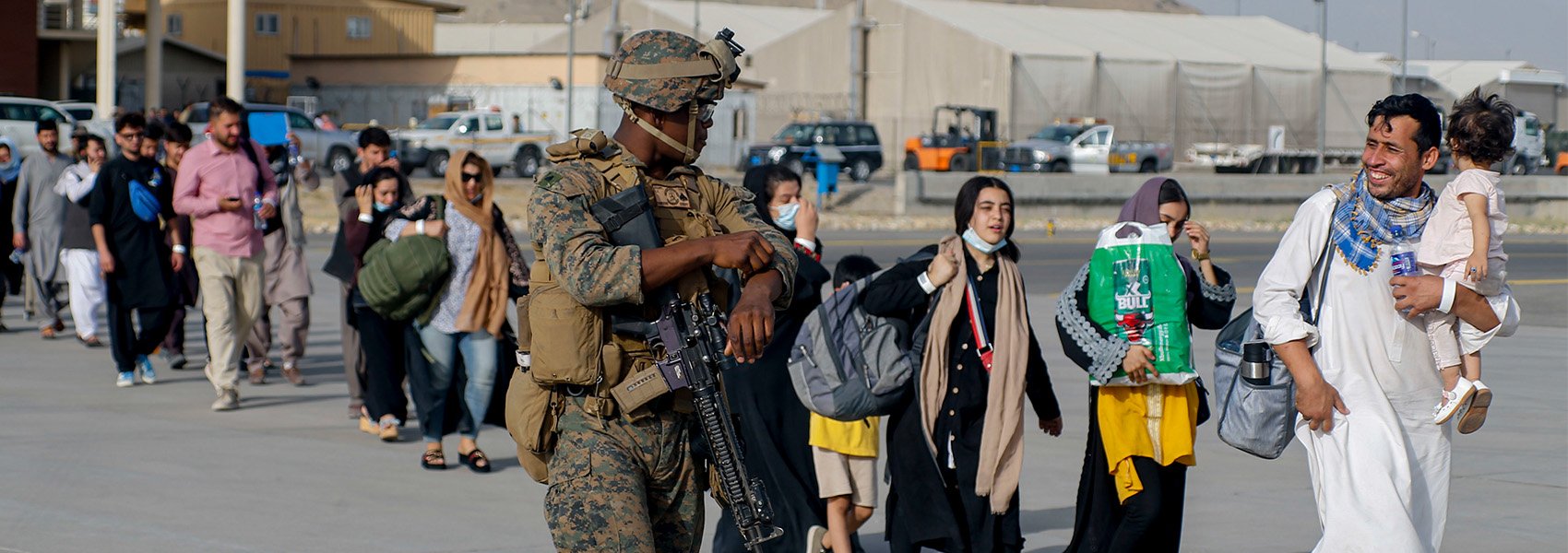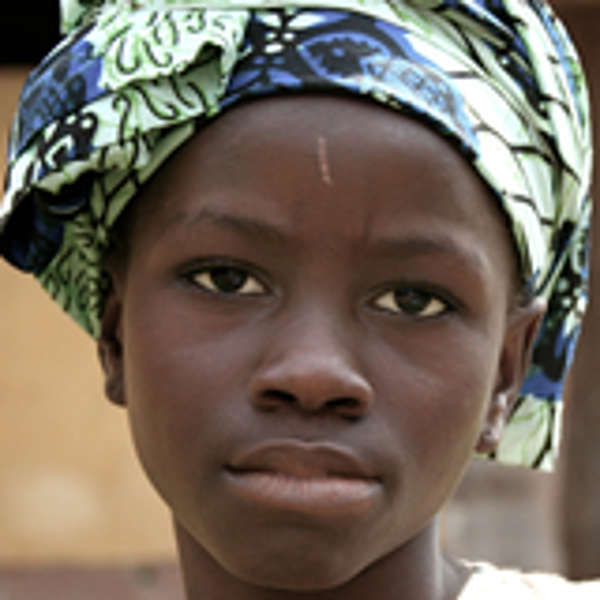Serving Afghan refugees on military bases: Bethany staff share their experiences
“There was a need, and Bethany said yes.”
Brad Kramer

Last August, the world’s attention was transfixed on Afghanistan as the U.S. military withdrew from the country and the Taliban swiftly took control. In a matter of weeks, the U.S. evacuated tens of thousands of vulnerable Afghans out of the country.
But in the chaos of the evacuation, there wasn’t time for each Afghan refugee to go through the usual vetting process before entering the United States. The U.S. government moved almost 70,000 Afghan evacuees to military bases where they could be vetted and processed by the government before being resettled in U.S. communities.
It was a monumental effort, especially in so short a time. The overwhelmed U.S. government called for volunteers from nonprofit and nongovernmental organizations to help Afghan refugees arriving on the bases. Three Bethany staff members answered the call—even though they had almost no idea what they would be doing to help. They spent several weeks at military bases across the U.S. last September.
Below, Bethany staff describe their extraordinary experiences on the front lines of the effort:
Daniel
I’m not a social worker, and I wasn’t sure I would do a good job. There wasn’t much information about what we’d be doing on the bases. But I heard there was a need, and it was an opportunity to serve people in Jesus’ name who were caught in a desperate situation. So I said yes.
I was basically an immigration officer for two weeks. I checked their immigration paperwork, Afghan ID cards, and passports. People had all kinds of documents. Some refugees had to leave their homes so fast they didn’t have time to grab their paperwork.
Honestly, it was pretty chaotic. The military welcomed thousands of refugees in a very short time. It’s impressive they pulled it off, but everyone was learning from mistakes.
Sometimes we would talk to people who came over without their families—husbands without wives, wives without husbands, kids without any parents or adults accompanying them. A lot of the families were separated in the chaos of the situation. “Can you help get my family here?” is what we heard over and over. It was heartbreaking. That was the hardest thing about the work.
After these interviews, I would say, “Welcome to the United States.” In many cases, the adults would put their hands on their hearts to express deep gratitude. Some would say things like, “the U.S. saved my life.” It was clear they were grateful for the chance to be here.
While the refugees waited hours to fill out paperwork, the kids had literally nothing to do except play with water bottles. But the volunteers had the idea to give them coloring books and crayons. And they played with the kids. The coloring pages were taped to the walls and the media came and took pictures of all the pages. That was my favorite experience in the camp.
The main thing is that there was a need, and Bethany said yes.
Cara
I got to interact with some of the first refugees to arrive on the base. We processed paperwork for up to 400 people a day. We worked for almost 12 hours a day, seven days a week. It was overwhelming and exhausting work.
The stories I heard broke my heart. One interpreter told me his family didn’t make it out of Afghanistan. They were hiding from the Taliban, and he had no idea how to get them out.
The bases didn’t have adequate housing or facilities for the refugees. That was very frustrating. I was glad to serve, but I was upset that the refugees were not always being treated according to international standards.
It was a complicated experience that gave me a better understanding of what it’s like to be on the front lines of serving refugees and immigrants.
Jill
I was on the “wellness and morale” team. They gave me a special vest and just told me to go help the refugees. There wasn’t much instruction. I started to talk with people through our interpreter, and amazing things started to happen. One woman gave me a big hug even though she didn’t know me.
One guy proudly showed me a picture of him with members of the U.S. Navy SEAL Team. “These are my brothers,” he said.
I asked a woman to teach me some phrases in Dari. I wrote down phrases so I could start communicating with other refugees. Mostly I was just trying to make connections wherever I could and encourage people however I could.
I kept trying to think of ways to engage the women refugees. I got permission to set up a nail salon table. I brought a bunch of nail polish from my home, and it was a big success. It was a chance for the women and girls to feel cared for after going through such terrible things.
The experience made me proud of my country for helping so many people, but it was a very chaotic situation. It was like you invited 10,000 people over for dinner but forgot to make food. I felt like I was trying to help make a bad situation better.
Bethany is about engaging the marginalized in the name of Jesus. It’s a sacred space when people are vulnerable and let you in; it’s really an honor.
An unfolding story
The situation has changed drastically since Afghan refugees first arrived on the bases. It took the U.S. government nearly six months to process all the refugees and resettle them into new communities across the country. Now a new chapter begins for these refugees. Bethany is working with Afghan refugees in 10 locations across the U.S., helping them start a new life and connect with their new communities.
This is the single largest refugee resettlement project in Bethany’s history. But we’re guided by the same instinct that led these three Bethany staff to volunteer: There’s a need, and we want to help.
You can help us welcome Afghan refugees by volunteering to provide in-person support or donating money, household goods, or gift cards. Learn more and sign up at Bethany.org/Afghanistan.
If you’re interested in joining a team of staff across the U.S. and around the world who serve vulnerable children and families in the name of Jesus, check out our job openings at Bethany.org/Careers.
Due to the sensitivity of the situations described, names of staff members have been changed.



